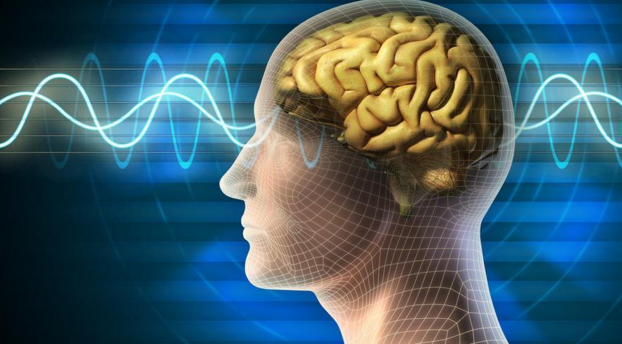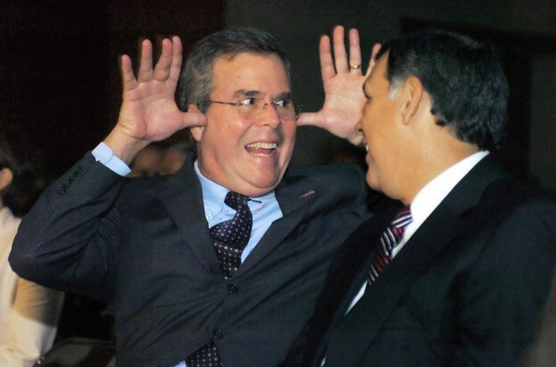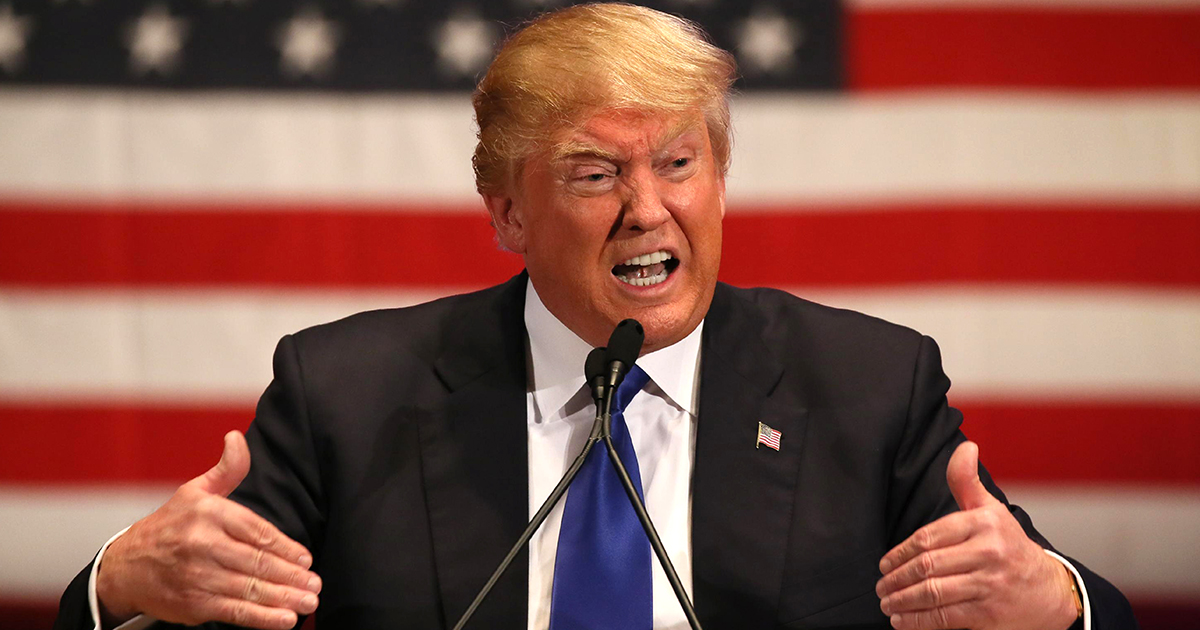The Scientific Reason Jeb Bush Makes You Uncomfortable

By:
Jeb Bush is no stranger to embarrassment. A new report explains why despite his flubs and missteps, we're prone to feel for the younger Bush brother.
A prime example of Jeb Bush's embarrassing moments.
On Tuesday, the Former Florida Gov. pled for the audience of a New Hampshire town hall to "Please clap," according to an MSNBC report.
"I think the next president needs to be a lot quieter but send a signal that we’re prepared to act in the national security interests of this country — to get back in the business of creating a more peaceful world,” Bush stated. The audience answered his call for a "quiet president" in kind — with silence. Bush's subsequent plea was answered with sparse applause and uncomfortable laughter.
This isn't the first time Jeb Bush has come off as more than a little awkward. The Bush campaign has been defined by Jeb's bumbling mannerisms as much as his disappointing poll numbers.
A Monday pre-caucus briefing in Des Moines opened by introducing him as “George — er, Jeb — Bush." Two seat-fillers proceeded to interrupt the meeting to demand payment.
While the Republican primary race is crowded with candidates polling poorly, Bush has made a much more popular punch line than his fellow GOP hopefuls — partially due to the fact that he was the presumed frontrunner before the Trump surge. But what exactly makes Jeb Bush so hard to watch?
Jeb Bush seems embarrassed, so we feel embarrassed for him.
New York Magazine's blog the Science of Us theorizes that Jeb Bush inspires vicarious embarrassment in his viewers. While his fellow candidates Donald Trump and Sen. Ted Cruz (R-Texas) exude authority and confidence, Jeb acts uncomfortable or ashamed.
Bush's palpable social discomfort may register in the same brain regions that we use to empathize with physical pain.
A 2011 study conducted in Marburg, Germany found, "not only that we empathize with other people’s embarrassment as we do their pain, but that we also experience this vicarious emotion whether or not we the person being embarrassed is aware of their social predicament."
When Jeb Bush appears awkward, we feel awkward too.
 Twitter/QLSInstitute
Twitter/QLSInstitute
The German term for this experience is "fremdscham," and it describes the opposite emotional impulse to the more well-known psychological term, "schadenfreude," which describes taking pleasure in others' pain.
How Vicarious Embarrassment Works
Fremdscham is related to empathy and is felt more strongly by more empathetic individuals. If you find Jeb particularly hard to watch, it may be because you are a particularly empathetic person.
"The higher the participants’ ratings on a scale of empathy, the greater the discomfort they felt relating to other people’s embarrassment," the 2011 study concludes.
The empathetic impulses tied to secondhand embarrassment evolved to preserve social order, Melissa Dahl explains. In ancestral human communities, embarrassment kept people in line, so vicarious embarrassment may have triggered social cues and signals to direct others to behave properly.
Enforcing rules of primal communities was a way of preserving your own social-standing, just as tweeting a GIF mocking Jeb Bush is a way of saying you understand the rules of politics and social decorum enough to know what makes his behavior strange, funny, or pathetic.
Jeb Bush's Awkwardness Is Not Serving Him Well.
Jeb Bush's stilted social decorum has set him apart from a field of candidates who are vying to voice the greatest strength and authority.
 twitter/lucytiven
twitter/lucytiven
Donald Trump, the GOP front runner, has railed against the GOP establishment, "politically correct" media standards, and politics in general. "Trump’s electoral strength — and his staying power — have been buoyed, above all, by Americans with authoritarian inclinations," Politico reports.
 AP Photo/Reiri Kurihara - apimages.com
AP Photo/Reiri Kurihara - apimages.com
Sen. Cruz also projects extreme confidence and a disregard for GOP norms, but his confidence is usually articulated in religious language and appeals to faith.
"Joy cometh in the morning,” Cruz declared in his victory speech following the Iowa caucus. Cruz's sermon-like speech cited God countless times. He also told reporters he is a "Christian first" and "American second" — which is both an extreme stance and a display of brazen confidence and perceived authority.
 Fox Business
Fox Business
Time describes the experience of vicarious embarrassment as "watching someone walk around with toilet paper on their shoe." This may be similar to what we feel when we watch Jeb Bush flounder in debates and speaking engagements.
 twitter/gigirules7
twitter/gigirules7
Science of Us also mentions a recent study that suggests that the more you like someone, the more you embarrassed you feel on their behalf. Even if our fascination with Bush's awkwardness means that we actually like him, it still isn't translating into voter support or favorable polls. This suggests that likability isn't tied to political success or that those who like Bush wouldn't consider voting for him.
